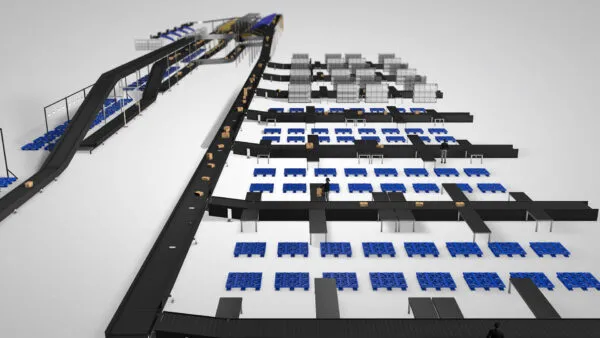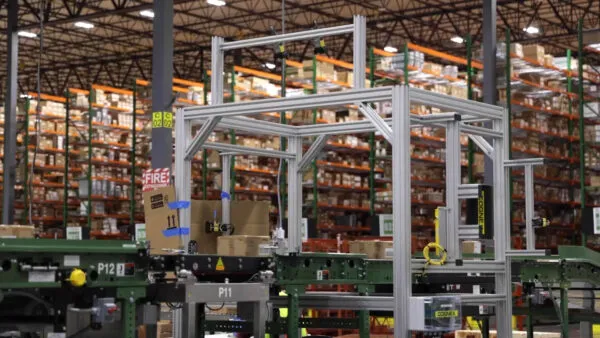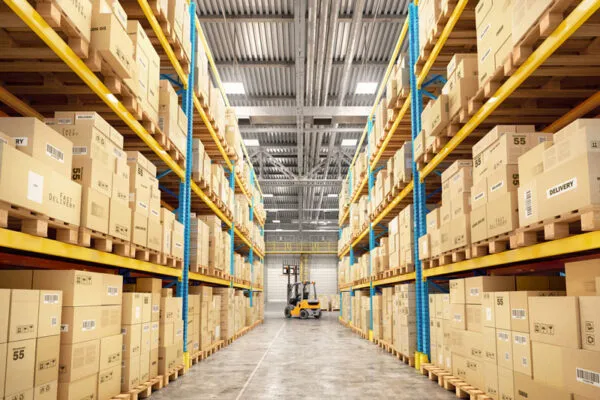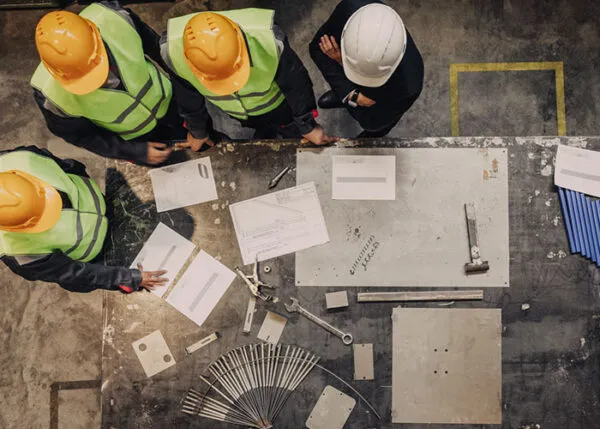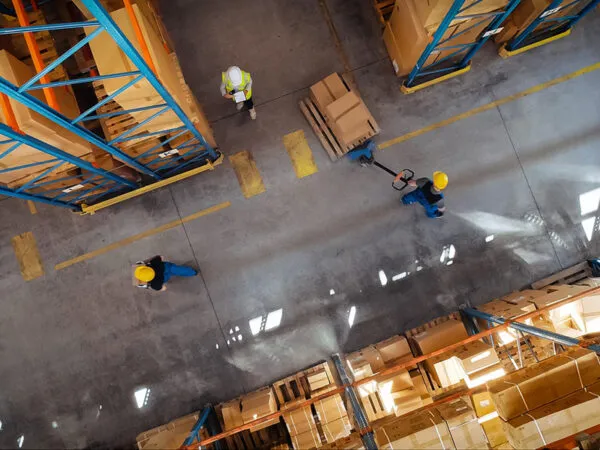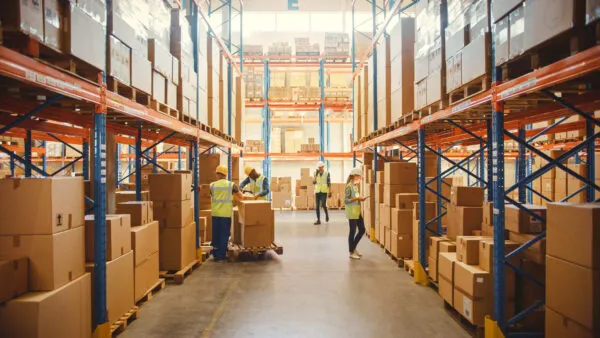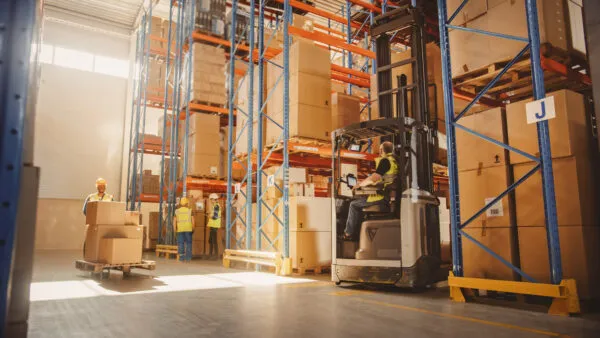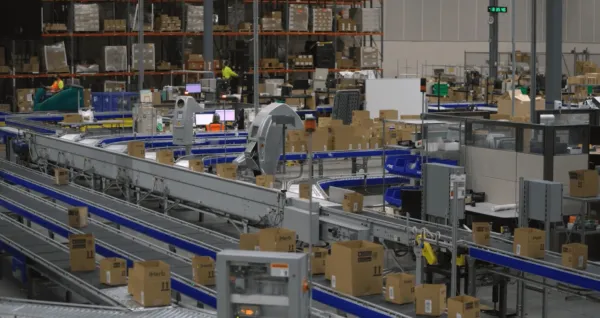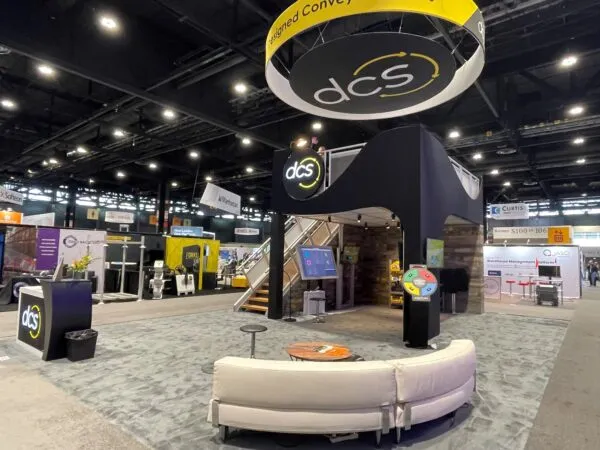This site is protected by reCAPTCHA and the Google Privacy Policy and Terms of Service apply.
The 4 Types of Material Handling Equipment
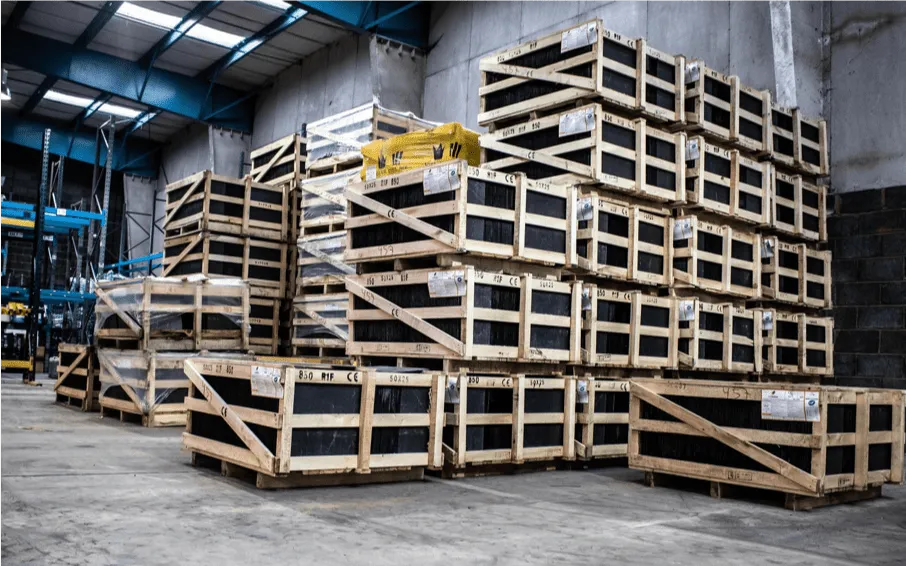
What is Material Handling Equipment?
From the simplest shelf to the most complex lights-out facilities (warehouse automation that can operate in the dark), warehouses use a lot of Material Handling Equipment. It’s hard to remember all the different kinds of equipments, but they fall under four broad types.
What are these Material Handling Equipment types? And what is Material Handling?
According to dictionary.com, material handling is the loading, unloading, and movement of goods, as within a factory or warehouse, especially by the aid of mechanical devices. Thus material handling equipment means devices that help a warehouse function by moving and storing goods.
Type 1: Storage and Handling Equipment
This is the simplest type, something so basic you might not even think of it as equipment. These are shelves and racks where you store your material in between receiving it and shipping it. They are often designed to utilize vertical space so the warehouse can hold more items. Bins, drawers, stacking frames, flow racks, cantilever racks, and mezzanines are also included in this category.
Type 2: Bulk Material Handling Equipment
According to Thomas Network, this is, the storing, transportation and control of materials in loose bulk form. If there’s a lot of material altogether, you’re probably using bulk material handling equipment. An example would be a silo, a large cylinder that can hold stuff like grain.
Other examples include:
- Stackers and reclaimers: Large machines that are used to dump things into piles or to pick them back up again. They can be hard to visualize, so here’s an animation of one working.
- Hoppers: Picture a large metal funnel. It stores material and can release an exact quantity out the bottom.
- Grain elevators: Buildings used to store grain. They include a series of buckets on a track that automatically transports grain to the top of the building where it can be funneled into different silos.
- Bucket elevators: Similar to a grain elevator, this device features buckets that transport large amounts of material.
- Conveyor Belts: Moving belts that transport material. They can be combined into more complicated conveyor systems which are considered engineered systems. If you want a conveyor system for your business, contact DCS.
- Dump Trucks: Also a type of industrial material transport vehicle.
- Screw Conveyor: A screw-shaped device inside a tube that turns to move material.
- Rotary car dumper: A device that turns a rail car to dump out its contents.
Type 3: Industrial Trucks
These are vehicles or equipment that move materials. Sometimes workers run them, and sometimes they are automatic. Automated Guided Vehicles (AGVs) fall under both engineered systems and industrial trucks.
Other examples are:
- Hand trucks: These are also called dollies. They are simple, L-shaped devices that let you carry material at a tilt.
- Side-loaders: These are used to load materials in narrow aisles where other trucks may be too wide.
- Pallet trucks: Hand-operated or electric devices that slide into pallets to move them.
- Walkie stackers: Thomas Network explains that these transport and lift pallets like a forklift, though they don’t include a place for the operator to ride in. They come in both powered or manual versions.
- Order pickers: These vehicles lift a worker off the ground so they can grab high packages.
- Platform trucks: Like a dolly but with a wider platform.
- Forklifts: Operational vehicles used to lift and transport heavy items.
Type 4: Engineered Systems
This type of material handling equipment involves more complicated systems with multiple components, usually warehouse automation.
Examples would be AGVs, conveyor belt or robotic delivery systems (complicated systems that come in different shapes and sizes), or Automated Storage and Retrieval System (AS/RS), which are automated systems often incorporating AGVs which make warehouses more efficient-basically anything that moves materials around the warehouse so workers don’t have to.
This category of equipment is the most complicated and expensive, often incorporating elements from the other categories into wider more expansive systems. These systems require a lot of time and research before making an investment.
A Material Handling Integrator Can Help
Your warehouse is unique and requires a unique solution. If you’re updating your current warehouse system and wondering what kind of material handling equipment you need, contact us. We are a material handling integrator, or systems integrator, that designs, engineers and integrates a system tailored to your needs and specifications.
